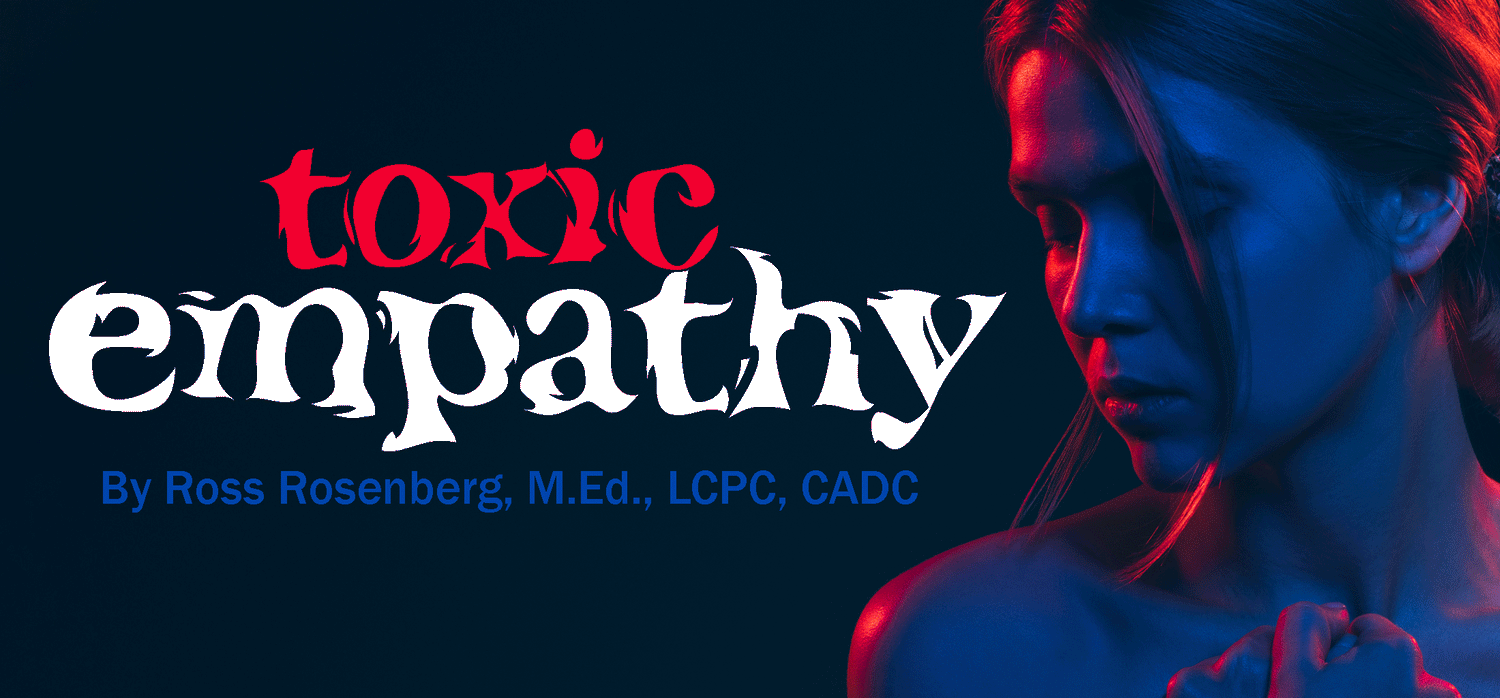
Toxic Empathy
Excerpt from Upcoming
“The Codependency Revolution”
Released with workbook in November 2023
Written by Ross Rosenberg, M.Ed., LCPC, CADC
Self-Love Recovery Institute — President/CEO
Psychotherapist, Educator, Author, Expert Witness
TOXIC EMPATHY
Before describing toxic empathy, its healthy form should first be defined. Empathy is seeing the world from another person’s unique perspective while accurately estimating their feelings and thoughts. Empaths or those gifted with empathy can understand another person’s emotions, even if they don’t feel them. By imagining the internal perspective and experiences of others–putting themselves in their shoes–a person can gain insights that others want but are unable. Healthy empathy can be “turned on and off.”
Conversely, toxic empathy is characterized by an excessive focus on the emotions of others, which can interfere with the person’s well-being. Empathy without a “filter” and an “on and off switch” manifests as overly amplified compassion, sensitivity, and understanding. Such malignant empathy causes codependents to over-identify with the perceived problems of others, their consequences, suffering, and feelings of hopelessness and powerlessness.
Toxic over-empathizes take on another person’s negative feelings and thoughts while incorporating them into theirs. As a result, it is common for such individuals to feel overwhelmed in relationships and struggle with maintaining day-to-day tasks and responsibilities. In the throes of it, codependents struggle to set reasonable boundaries, which in turn, causes even higher levels of chaos in the lives of codependents.
An example of this debilitating form of empathy is an individual who cannot stop worrying about a severely depressed friend whose girlfriend broke up with him and was fired from his job in the same week. This over-empathizing friend was reprimanded by his supervisor at work for constant text messaging. This same person goes home, cannot eat as much as usual, and has several nights of disrupted sleep.
- Excessive attunement to the negative emotions or complaints of others
- Unable to set boundaries because of hyper-amplified concern and sympathy.
- Strong emotional reactions to the problems and struggles of friends and other loved ones.
- Lingering worry and concern for another person’s problems
- You feel overwhelmed after talking to people about their problems because it’s as if they’re happening to you
- Chronic exhaustion because of emotional enmeshment with another person’s life
- Feeling emotionally depleted after social activities.
- Unable to fulfill personal responsibilities.
- Self-care is compromised.


0 comments